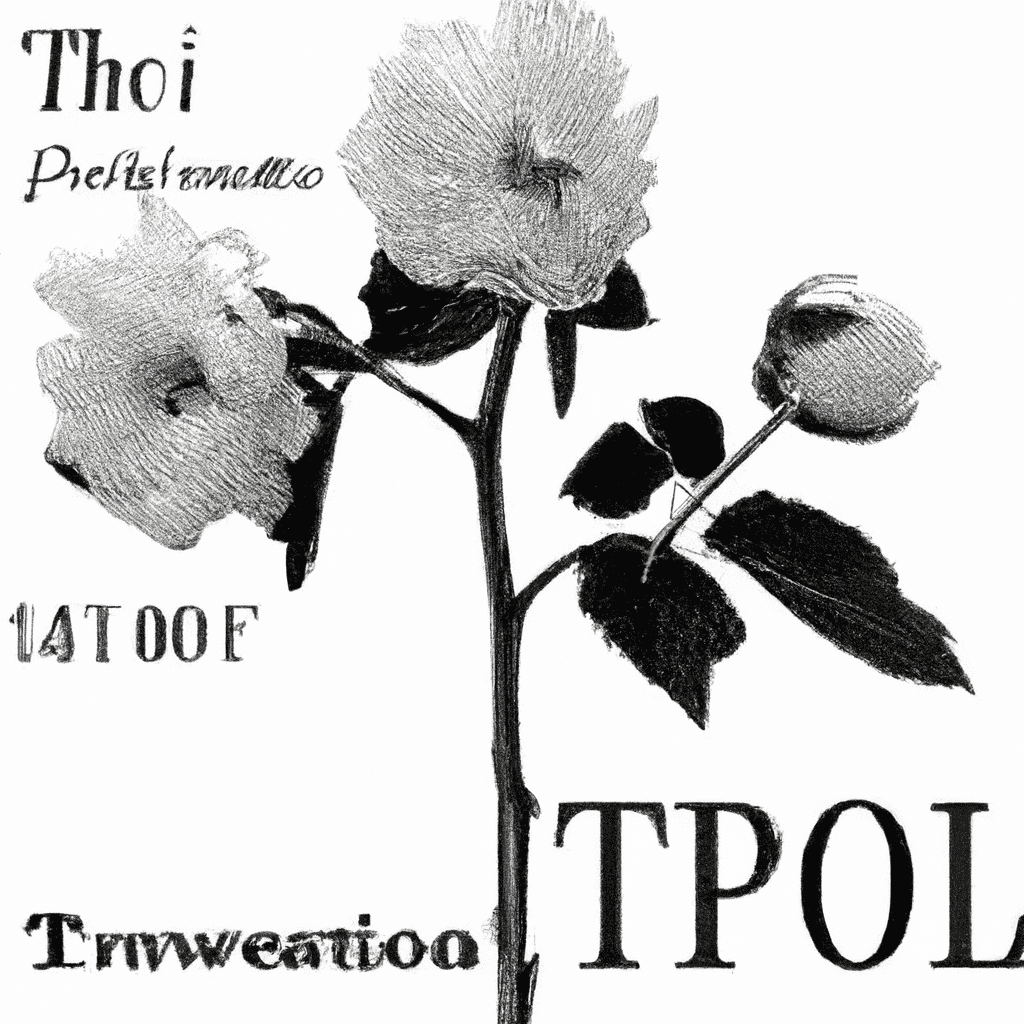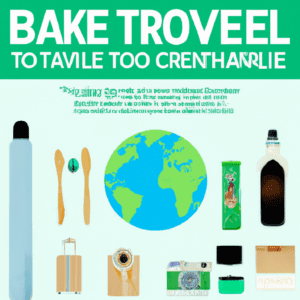Are you passionate about fashion but also concerned about the ethical practices in the apparel industry? Look no further, because Fashion Revolution is here to guide you on how to advocate for sustainable and ethical practices in the fashion world. With a focus on bringing transparency and positive change to the industry, this movement empowers fashion lovers like you to take action. In this article, we will explore the importance of sustainable fashion and provide you with practical tips on how to become a fashion advocate for better ethical practices. So, grab your favorite cup of tea and get ready to make a stylish difference!
1. Understanding Sustainable Fashion
1.1 What is sustainable fashion?
Sustainable fashion refers to the practice of creating, producing, and consuming clothing in a way that is socially and environmentally responsible. It aims to minimize the negative impact of the fashion industry on the planet and the people involved in the production process. Sustainable fashion focuses on using eco-friendly materials, reducing waste, promoting fair labor practices, and fostering a circular economy.
1.2 Benefits of sustainable fashion
There are numerous benefits associated with sustainable fashion. Firstly, it reduces the environmental footprint of the fashion industry by utilizing eco-friendly materials and adopting sustainable production processes. This helps to conserve natural resources and minimize pollution and waste. Secondly, sustainable fashion promotes fair labor practices, ensuring that workers are treated ethically and provided with safe working conditions and fair wages. Lastly, adopting sustainable fashion practices can lead to the creation of a more circular economy, where clothing is designed to be recycled, reducing the reliance on virgin materials.
1.3 Challenges in the apparel industry
The apparel industry faces numerous challenges when it comes to implementing sustainable practices. One major challenge is the fast fashion model, where retailers produce low-quality garments at a rapid pace, encouraging overconsumption and contributing to massive textile waste. Additionally, complex and opaque supply chains make it difficult for consumers to trace the origin of their clothing and ensure ethical production standards. The high demand for cheap clothing also puts pressure on brands to prioritize cost-cutting measures over ethical considerations.
1.4 The need for ethical practices
Given the negative impacts of the fashion industry, there is an urgent need for ethical practices in the apparel industry. Workers in the fashion industry often face exploitation, unsafe working conditions, and low wages. The industry also generates substantial greenhouse gas emissions, consumes vast amounts of water, and contributes to plastic pollution. Embracing ethical practices is crucial to protect the rights of workers, preserve the environment, and promote a more sustainable and responsible fashion industry.
2. Fashion Revolution: An Overview
2.1 What is Fashion Revolution?
Fashion Revolution is a global movement that seeks to promote transparency, sustainability, and ethics in the fashion industry. It was founded in response to the Rana Plaza tragedy in 2013, where a clothing factory in Bangladesh collapsed, killing over 1,100 workers. Fashion Revolution aims to raise awareness about the social and environmental impacts of the fashion industry and encourage individuals to become more conscious consumers.
2.2 History of Fashion Revolution
Fashion Revolution was launched in 2014 on the first anniversary of the Rana Plaza collapse. It started as a social media campaign with the hashtag #whomademyclothes, encouraging consumers to question brands about their supply chains. Since then, Fashion Revolution has grown into a global movement with events, campaigns, and initiatives taking place in over 100 countries.
2.3 Mission and goals
Fashion Revolution’s mission is to create a more transparent and sustainable fashion industry. It aims to achieve this by advocating for worker rights, environmental protection, and the need for a more circular economy. Fashion Revolution also seeks to empower consumers to make informed choices and demand change from brands and retailers.
2.4 Importance of advocating for ethical practices
Advocating for ethical practices in the fashion industry is crucial for several reasons. Firstly, it ensures that workers are treated fairly and provided with safe working conditions, supporting human rights and social justice. Secondly, it helps to minimize the negative environmental impacts of the industry, such as deforestation, pollution, and waste. Finally, advocating for ethical practices encourages brands to be more transparent, allowing consumers to make informed choices and support sustainable fashion.


3. Raising Awareness
3.1 Social media campaigns
Social media campaigns play a significant role in raising awareness about sustainable fashion and advocating for ethical practices. Initiatives like the #whomademyclothes campaign encourage individuals to question brands about their supply chains and demand transparency. By sharing information, stories, and engaging with consumers, these campaigns create a platform for conversation and help amplify the voices of those advocating for change.
3.2 Public events and protests
Public events and protests are powerful tools for raising awareness about the need for ethical practices in the fashion industry. Fashion Revolution Week, held annually in April, is a global event that brings together individuals, organizations, and brands to host various activities, including panel discussions, workshops, and clothing swaps. These events provide opportunities for education, engagement, and mobilization, inspiring people to take action and support the movement for a more sustainable fashion industry.
3.3 Collaboration with influencers
Influencers have a significant impact on consumer behavior and can play a vital role in advocating for ethical practices in the fashion industry. Fashion Revolution collaborates with influencers who align with their values to promote ethical fashion through social media platforms, blog posts, and other channels. These collaborations help reach a broader audience and encourage individuals to consider the social and environmental impact of their fashion choices.
3.4 Utilizing traditional media
Traditional media, such as newspapers, magazines, and television, also play a crucial role in raising awareness about sustainable fashion. Fashion Revolution works with journalists and media outlets to highlight the social and environmental issues within the fashion industry and promote ethical practices. Through news articles, features, and interviews, they bring attention to the need for change and encourage consumers to become more conscious of their fashion choices.
4. Educating Consumers
4.1 Transparent supply chains
One key aspect of educating consumers about ethical fashion is promoting transparency in supply chains. Fashion Revolution encourages brands to disclose information about their suppliers, factories, and production processes. By providing accessible and transparent information, consumers can make informed choices and support brands that prioritize ethics and sustainability.
4.2 Labeling and certifications
Labels and certifications play a crucial role in helping consumers identify and choose sustainable and ethical fashion. Fashion Revolution advocates for clear and standardized labeling systems that provide information about a garment’s environmental and social impact. Certified labels, such as Fairtrade, Global Organic Textile Standard (GOTS), and Bluesign, provide assurance that the garment meets specific ethical and environmental standards.
4.3 Consumer education initiatives
Fashion Revolution believes in the power of education to drive change. They develop resources and educational materials to help consumers understand the complexities of the fashion industry and the impact of their choices. These initiatives include workshops, online courses, and educational campaigns that aim to empower individuals to become active participants in the movement for a more sustainable fashion industry.
4.4 Supporting sustainable brands
Supporting sustainable brands is an essential aspect of being an ethical fashion consumer. Fashion Revolution provides resources and directories that showcase brands and labels committed to ethical practices. By choosing to purchase from these brands, consumers can contribute to the growth of a more sustainable fashion industry and support the values of transparency, fair labor, and environmental responsibility.


5. Engaging with Brands and Retailers
5.1 Researching brand ethics
Engaging with brands and retailers requires consumers to research and evaluate the ethics of different companies. Fashion Revolution encourages individuals to ask brands about their supply chains, labor practices, and environmental policies. By accessing information through brand websites, social media, and other resources, consumers can make conscious decisions and support brands that align with their values.
5.2 Holding brands accountable
Holding brands accountable for their actions and choices is crucial in driving change within the fashion industry. Fashion Revolution encourages individuals to engage with brands through social media, emails, or in-person events to express their expectations and concerns. Collective action, such as petitions and boycotts, can also be effective in pressuring brands to prioritize ethical practices and make meaningful changes.
5.3 Requesting transparency and change
One way to advocate for ethical practices is by requesting transparency and change directly from brands and retailers. Individuals can send emails, letters, or social media messages to brands, asking for information about their supply chains, labor practices, and environmental initiatives. By actively engaging and demanding greater transparency and accountability, consumers can push for the adoption of ethical practices within the fashion industry.
5.4 Supporting ethical brands
Supporting ethical brands through purchasing decisions is a powerful way to drive change in the fashion industry. Fashion Revolution encourages consumers to seek out brands that prioritize ethics, sustainability, and transparency. By choosing to invest in thoughtfully produced garments, consumers can send a strong message to the fashion industry, showing that ethical practices are valued and in demand.
6. Legislation and Policy Advocacy
6.1 Collaboration with NGOs and nonprofit organizations
Fashion Revolution collaborates with NGOs and nonprofit organizations that work towards promoting sustainable and ethical practices in the fashion industry. By joining forces, they can advocate for legislative changes, push for industry-wide regulations, and amplify their impact. Collaboration with these organizations helps to pool resources, share knowledge and expertise, and create a unified voice for change.
6.2 Lobbying for ethical regulations
Advocating for ethical regulations is a crucial part of Fashion Revolution’s mission. They engage with policymakers, governments, and industry leaders to push for legislation that supports ethical practices in the fashion industry. Lobbying efforts focus on areas such as supply chain transparency, fair labor laws, environmental regulations, and waste management practices. By advocating for ethical regulations, Fashion Revolution aims to create a level playing field where ethical practices are the norm, rather than the exception.
6.3 Working with government agencies
Collaboration with government agencies is vital in effecting change within the fashion industry. Fashion Revolution engages with agencies responsible for trade, labor, and the environment to promote sustainable and ethical practices. By working together, they can develop policies, regulations, and incentives that encourage brands and retailers to adopt ethical practices and prioritize sustainability.
6.4 Promoting fair trade policies
Promoting fair trade policies is a key aspect of Fashion Revolution’s advocacy efforts. Fair trade ensures that workers receive fair wages, safe working conditions, and the right to collective bargaining. Fashion Revolution supports fair trade initiatives and campaigns, encouraging consumers to choose fair trade certified products. By promoting fair trade policies, Fashion Revolution aims to create a fashion industry that values and respects the rights and well-being of all workers involved.


7. Promoting Worker Empowerment
7.1 Ensuring fair wages and working conditions
Promoting fair wages and working conditions is a fundamental aspect of advocating for ethical practices in the fashion industry. Fashion Revolution emphasizes the importance of brands and retailers paying workers living wages and ensuring safe and healthy working conditions. By addressing issues such as excessive working hours, discrimination, and lack of access to social protections, Fashion Revolution works towards empowering workers and promoting social justice.
7.2 Supporting worker unions and organizations
Supporting worker unions and organizations is crucial in advocating for worker empowerment. Fashion Revolution collaborates with unions and organizations that represent and advocate for the rights of workers in the fashion industry. By supporting these groups financially, sharing their stories, and amplifying their voices, Fashion Revolution helps to bring attention to workers’ rights issues and promotes a more equitable and respectful industry.
7.3 Advocating for gender equality
Promoting gender equality is an integral part of Fashion Revolution’s advocacy efforts. Women make up a significant portion of the fashion industry workforce, yet they often face discrimination, harassment, and unequal pay. Fashion Revolution works towards eliminating gender-based discrimination and advocating for equal rights and opportunities for all workers, regardless of gender. By promoting gender equality, Fashion Revolution aims to create a more inclusive and empowering industry.
7.4 Social responsibility in production
Fashion Revolution advocates for social responsibility in production by urging brands and retailers to take responsibility for the social impacts of their operations. This includes ensuring that workers’ rights are respected, communities are not adversely affected, and cultural heritage is preserved. By prioritizing social responsibility, brands can build trust with consumers and contribute to positive social change within the fashion industry.
8. Becoming an Ethical Fashion Consumer
8.1 Researching brands and materials
Becoming an ethical fashion consumer involves researching brands and materials to make informed choices. Fashion Revolution encourages individuals to consider the environmental and social impacts of the clothing they purchase. By evaluating the sustainability practices, transparency, and ethical values of brands, consumers can support companies that align with their values and contribute to a more responsible fashion industry.
8.2 Choosing quality over quantity
Choosing quality over quantity is an essential principle of ethical fashion consumption. Fashion Revolution highlights the importance of investing in well-made, durable garments that will last longer. By opting for quality pieces, consumers can reduce the need for frequent replacements, minimize waste, and support brands that prioritize sustainable and ethical production practices.
8.3 Embracing second-hand fashion
Embracing second-hand fashion is a sustainable and affordable way to participate in the fashion industry while reducing its environmental impact. Fashion Revolution encourages individuals to explore thrift stores, vintage shops, and online platforms for pre-loved clothing. By prolonging the lifespan of clothing and participating in the circular economy, consumers can minimize resource consumption and promote a more sustainable fashion industry.
8.4 Renting and sharing initiatives
Renting and sharing initiatives are gaining popularity as sustainable alternatives to traditional shopping. Fashion Revolution advocates for the use of rental platforms and clothing libraries, where individuals can borrow garments for special occasions or short-term needs. By participating in these initiatives, consumers can reduce their wardrobe’s environmental footprint and support a more circular and sharing-focused fashion industry.


9. Collaboration and Partnerships
9.1 Working with other advocacy groups
Collaborating with other advocacy groups is essential for Fashion Revolution’s efforts to promote ethical practices in the fashion industry. They work with like-minded organizations, including labor rights groups, environmental organizations, and social justice advocates. By sharing resources, expertise, and networks, these collaborations strengthen the collective impact of advocating for a more sustainable and ethical fashion industry.
9.2 Partnership with sustainable initiatives
Fashion Revolution partners with sustainable initiatives focused on transforming the fashion industry. These initiatives may include sustainable fashion weeks, circular economy projects, or innovation hubs. By working together, Fashion Revolution and sustainable initiatives can exchange ideas, share best practices, and amplify their impact, ultimately contributing to a more responsible and sustainable fashion industry.
9.3 Building a global fashion network
Building a global fashion network is crucial for Fashion Revolution’s mission to drive change at a global scale. They aim to connect individuals, organizations, and industry stakeholders from around the world to foster collaboration and knowledge sharing. By building a global fashion network, Fashion Revolution can create a unified and powerful voice for change and increase awareness and action towards ethical practices in the fashion industry.
9.4 Sharing best practices
Sharing best practices is a key aspect of Fashion Revolution’s work. They aim to create a platform where brands, retailers, and consumers can exchange ideas, innovations, and success stories in ethical fashion. By sharing best practices, Fashion Revolution helps to inspire and guide the fashion industry towards more sustainable and ethical practices, driving positive change in the industry.
10. The Future of Fashion Revolution
10.1 Positive trends and developments
The future of Fashion Revolution looks promising, as there are several positive trends and developments within the fashion industry. More brands are embracing transparency, adopting sustainable and ethical practices, and taking steps towards circularity. Consumers are becoming more conscious of their fashion choices, demanding transparency, and supporting brands that prioritize sustainability. Governments and policymakers are also recognizing the need for regulations and initiatives to address the social and environmental impacts of the fashion industry.
10.2 Challenges and opportunities
Despite the positive trends, the fashion industry still faces significant challenges in adopting ethical practices. Fast fashion, overconsumption, and waste continue to be major challenges. However, these challenges also present opportunities for innovation, collaboration, and change. By harnessing the power of technology, embracing circular economy models, and working together, the fashion industry can overcome these challenges and move towards a more sustainable and responsible future.
10.3 Role of technology in ethical practices
Technology plays a crucial role in driving ethical practices in the fashion industry. Innovations such as blockchain, artificial intelligence, and data analytics can enhance supply chain transparency, traceability, and accountability. Technology also enables the development of sustainable materials, efficient production processes, and the creation of digital platforms for second-hand fashion and rentals. Embracing technological advancements can significantly contribute to the adoption of ethical practices in the fashion industry.
10.4 Continued advocacy efforts
The future of Fashion Revolution relies on continued advocacy efforts and collective action. Individuals, organizations, brands, and governments must continue to push for transparency, sustainability, and ethical practices. By raising awareness, demanding change, and supporting brands that align with their values, consumers play a crucial role in driving the fashion industry towards a more ethical and sustainable future. The journey towards a fashion industry that values people and the planet requires ongoing dedication, collaboration, and commitment to change.













